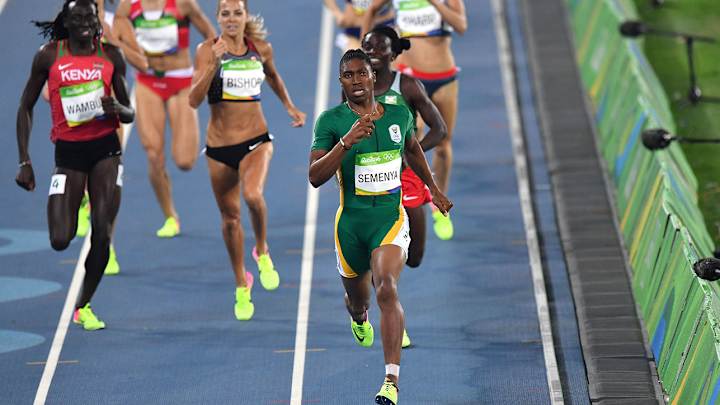Rule By Track and Field's Governing Body May Force Some Female Athletes to Lower Testosterone Levels

The International Association of Athletics Federation, track and field's governing body, has officially announced a new rule that would force some elite female runners with naturally-high testosterone levels to take medication to lower their hormone levels or they must compete against men in certain events. The IAAF views the regulation as a step toward creating “fair and meaningful competition within the female classification.”
The new rule is slated to take effect in November and would effect athletes in the 400 meters to mile. These events were selected after the IAAF funded a study with the World Anti-Doping Agency to examine natural testosterone levels in athletes. It found that there are natural testosterone levels of .12-1.79 nanomoles per liter in blood in most women. Normal men after puberty have levels of about 7.7-29.4 nanomoles per liter in blood. Under the new IAAF rules, female athletes have to keep the natural testosterone level under five.
“As the International Federation for our sport we have a responsibility to ensure a level playing field for athletes," IAAF president Sebastian Coe said in a statement. "Like many other sports we choose to have two classifications for our competition – men’s events and women’s events. This means we need to be clear about the competition criteria for these two categories. Our evidence and data show that testosterone, either naturally produced or artificially inserted into the body, provides significant performance advantages in female athletes. The revised rules are not about cheating, no athlete with a DSD has cheated, they are about levelling the playing field to ensure fair and meaningful competition in the sport of athletics where success is determined by talent, dedication and hard work rather than other contributing factors.”
The IAAF also plans to have division for athletes with Differences of Sexual Development where women can have natural testosterone levels beyond the normal male range.
Under the regulations, female track athletes with naturally-higher testosterone levels will be required to lower the hormone levels in their blood for six months before being allowed to compete.
Female athletes can lower their testosterone levels by undergoing hormone therapy. Athletes will not be required to undergo surgery to lower hormone levels.
In recent years, the topic of fairness in women's sports has been controversial when women with naturally-higher levels of testosterone have won medals at global championships including the 2016 Olympics. Hyperandrogenism is a medical condition which causes a person to produce high levels of hormones. The IAAF was at the center of a scandal in 2009 when it was reported South African middle distance runner Caster Semenya was subjected to sex verification testing. By 2011, the IAAF put a limit on testosterone levels in female athletes where those with a ratio of 10 nanomoles per liter or higher were only compete against women if they underwent an operation or took hormones to reduce their testosterone level.
Semenya, a two-time Olympic champion at 800 meters, is believed by many to be hyperandrogenous but it she has never confirmed any medical condition. She has never discussed taking hormone suppressants either.
In 2015, the Court of Arbitration for Sport put a temporary stop to the IAAF regulation after Indian sprinter Dutee Chand fought that she was being discriminated against for her condition. CAS told the IAAF that the rule would be shelved until it could prove that there was a clear difference between male and female testosterone levels and an advantage. In 2017, the British Journal of Sports Medicine determined women with elevated testosterone levels had a 1.78% yo 4.53% competitive advantage in events including the 400 meters, 400-meter hurdles, 800 meters, hammer throw and pole vault. The hammer throw and pole vault will not be affected under the new rule.
When the IAAF limit was in place, Semenya's times slowed but since its suspension, she has returned to dominance in the women's 800 meters. She won a silver medal at the 2011 IAAF World Championships and 2012 Olympics behind Russia's Maria Savinova, who has been stripped of the gold medal due to doping. Semenya won gold in the same event at the 2016 Olympics in Rio de Janeiro and has lowered her personal best to 1:55.16, which has her knocking on the door of Jarmila Kratochvílová's 1:53.28 world record. Semenya has not lost an 800 meter race since Sept. 6, 2015. Several of Semenya's competitors have voiced concern about racing in unfair conditions that are out of their control.

An avid runner, Chris Chavez covers track and field, marathons and the Olympics for Sports Illustrated.